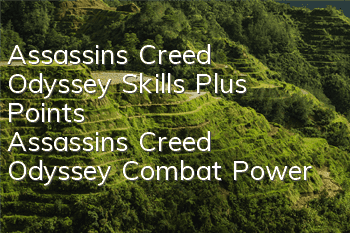GameSpot recently released two long articles about Assassin's Creed: Odyssey, one of which focuses on the major improvements in combat made by Assassin's Creed: Odyssey compared to its previous work Assassin's Creed: Origins.
GameSpot says the most popular change in Assassin's Creed Odyssey is the cancellation of shields and defensive postures. Players can no longer resist enemy attacks and arrows, but instead dodge. This changes the way of fighting, forcing players to pay close attention to the movement of enemies while keeping abreast of distance between themselves and their opponents. In contrast, Assassin's Creed: Origins battles can easily become boring, as players can often use shields to resist attacks and then launch a powerful blow to knock them down. And in Assassin's Creed Odyssey, you need to be fully focused and not be hit by enemies before launching an attack.
Although you cannot equip your shield, your enemies can equip your shield. This sense of imbalance and oppression is something you rarely feel in Assassin's Creed: Origins. Fortunately, the player has a shield removal skill that quickly pushes the enemy to the ground.
Another change is the tumbled minor adjustment. In Origin, players can roll after pressing the dodge button three times, but it does not have much tactical effect, and it is more of a fancy style. However, in "Odyssey", you can roll by pressing the dodge key, and the action covers more ground than the standard dodge. In combat, you need to distinguish which enemy attack requires rolling, and which one only needs to avoid quickly. Although it is a minor change, it will make a huge difference in combat.
In addition, GameSpot also mentioned that in "Assassin's Creed: Odyssey", there are also more choices that need to be made during battles than "Origin", and boss battles are more difficult and more complicated.
Finally, GameSpot also confirmed that in Assassin's Creed: Odyssey, players can add points at any time, without any cost, so that players can adjust their combat style at any time.









